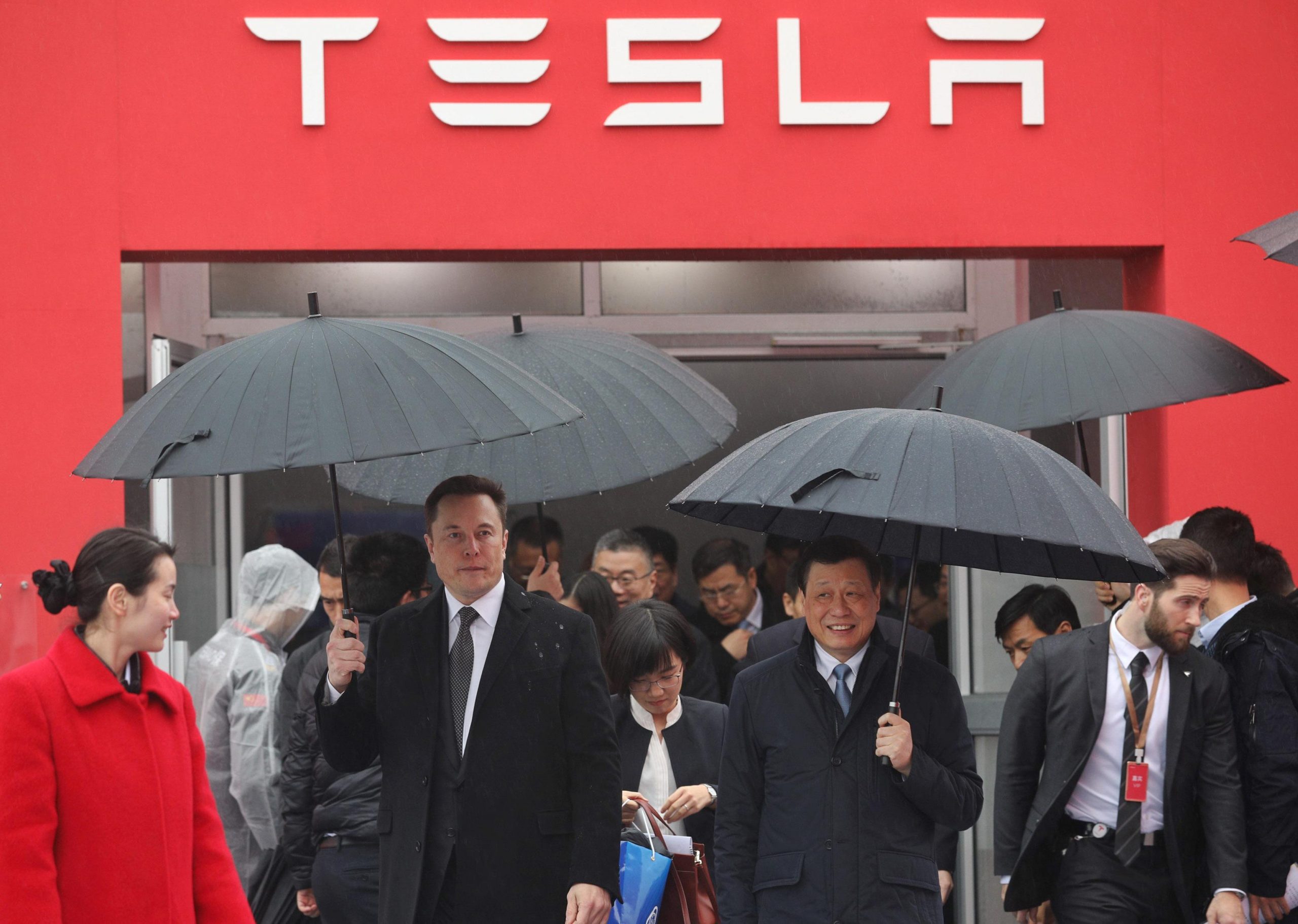
STR / AFP via Getty Images
- Tesla has stopped a planned expansion of its Shanghai plant, sources told Reuters.
- Tesla will slow production in China because of tensions between the China and US, they said.
- The expanded Shanghai plant would have allowed Tesla to produce 200,000 extra vehicles, they said.
- See more stories on Insider's business page.
Tesla no longer intends to buy land to increase capacity at its Shanghai factory, Reuters reported.
Tesla also plans a general slowdown in China-based production despite soaring revenues in the country, sources familiar with the matter told Reuters.
The electric-car maker was expected to bid on a plot of land next to its Shanghai factory, but did not make a bid, the sources said. The plot was about about half the size of its current 80-hectare facility, they said.
Tesla has never publicly said it wanted to buy the plot of land. The company told Reuters its Shanghai plant was "developing as planned."
Local media reports showed construction next to Tesla's Shanghai plant last month.
The facility makes 450,000 Model 3 and Model Y cars every year, and with the extra space Tesla could have made an extra 200,000 vehicles, the sources said.
Tesla sells its China-made Model 3 cars in Europe, and had considered exporting to more markets including the US, sources said.
The company has now decided to slow down its China output due, in part, to an extra 25% tariff on China-made vehicles imported into the US introduced by former President Donald Trump in 2018, sources told Reuters.
The company made $3 billion in revenue in China in its first quarter, or 30% of its total revenue, but faces a potential regulatory clampdown from state authorities.
Chinese regulators met with Tesla representatives in February after a series of customer complaints about the safety of its vehicles. Since October, the automaker has recalled nearly 85,000 vehicles in China for suspension failures and problems with their touchscreen.